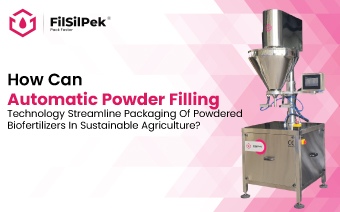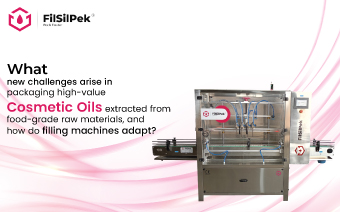Factors Affecting the Price of Liquid Filling Machine
When it comes to purchasing a liquid filling machine for your business, understanding the factors that influence its price is crucial. From the machine’s capacity and technology to its construction materials and additional features, various elements impact the overall cost.
In this comprehensive blog, we will delve into the key factors that affect liquid filling machine prices. By gaining insight into these factors, you will be better equipped to make informed decisions, optimize your budget, and choose the right filling machine that aligns with your business requirements.
What is Liquid Filling Machine?
A liquid filling machine is a specialized industrial equipment used to accurately and efficiently fill containers with liquid products. These machines are commonly used in various industries such as food and beverage, pharmaceuticals, cosmetics, chemicals, and more.
Liquid filling machines are designed to handle different types of liquids, including water, oils, syrups, creams, gels, and other fluid substances. They come in various configurations and sizes to accommodate different production requirements, from small-scale operations to high-volume production lines.
These machines automate the filling process, ensuring precise and consistent liquid measurements. They typically consist of a reservoir or tank to hold the liquid, a delivery system (such as pumps or valves) to control the flow and a mechanism to dispense the liquid into containers, such as bottles, jars, or tubes.
Top 6 Factors Affecting Liquid Filling Machine Price
- Machine Capacity: The capacity of a liquid filling machine, typically measured in units per minute or volume, plays a significant role in determining its price. Machines with higher capacities usually come with a higher price tag due to their ability to handle larger production volumes. It’s important to assess your specific production needs and choose a machine capacity that aligns with your anticipated output levels.
- Filling Technology: Different filling technologies, such as gravity filling, piston filling, or vacuum filling, have varying complexities and efficiencies. The choice of filling technology affects the machine’s price as it determines the precision, speed, and compatibility with different types of liquids. Understanding the unique requirements of your products will help you select the most suitable technology, considering both performance and cost implications.
- Built-up Materials: The materials used in the manufacturing of liquid filling machines impact their durability, reliability, and price. Machines made from high-quality, corrosion-resistant materials such as stainless steel tend to be more expensive than those made from lower-grade materials. Investing in a machine built with durable materials can result in long-term cost savings and reduced maintenance needs.
- Automation and Customization: The level of automation and customization features integrated into a liquid filling machine can significantly influence its price. Automated machines equipped with advanced control systems, touchscreens, and programmable settings tend to be more expensive due to their enhanced efficiency and precision. Similarly, machines that can be customized to accommodate specific bottle sizes, shapes, or sealing requirements may come at a higher cost.
- Brand and Reputation:The reputation and brand of the manufacturer can also impact the price of a liquid filling machine. Established and renowned brands often command higher prices due to their track record of delivering reliable and high-quality equipment. However, it’s important to evaluate the reputation of the brand in terms of customer reviews, after-sales support, and service availability to ensure that the higher price is justified by the added value.
- After-Sales Support and Warranty: The level of after-sales support, warranty coverage, and maintenance services offered by the manufacturer can affect the overall cost of the liquid filling machine. Machines with comprehensive warranty coverage and responsive customer support may have a higher initial price but can save you money in the long run by minimizing downtime and repair costs.
How Can the Manufacturer Affect the Price of Liquid Filling Machine?
The liquid filling machine manufacturer can indeed affect its price. Different manufacturers may offer machines with varying quality, features, and reputation, which can influence the pricing. Here’s how the manufacturer can impact the price of a liquid filling machine:
- Brand Reputation: Established and reputable manufacturers often command higher prices for their machines. Their brand reputation, built on a history of delivering reliable and high-quality equipment, can contribute to the higher cost. Businesses may be willing to invest more in a machine from a trusted manufacturer due to their track record of customer satisfaction and reliable performance.
- Quality Standards: Manufacturers that prioritize quality and adhere to rigorous manufacturing standards may charge more for their machines. These manufacturers invest in using premium-grade materials, employing advanced manufacturing techniques, and conducting thorough quality control processes. Such attention to quality can result in a higher price for their machines.
- Technology and Innovation: Manufacturers that invest in research and development to introduce advanced features and innovative technologies into their liquid filling machines often offer them at a premium price. These machines may incorporate automation, advanced control systems, touchscreen interfaces, or other cutting-edge features that enhance performance and productivity.
- After-Sales Support and Services: The level of after-sales support, warranty coverage, and maintenance services provided by the manufacturer can affect the overall cost of the liquid filling machine. Manufacturers that offer comprehensive support, prompt customer service, and readily available spare parts may price their machines higher to cover these added services.
- Customization Options: Some manufacturers may provide customization options to tailor the liquid filling machine to specific customer requirements. Customization, such as accommodating unique bottle shapes or sizes, incorporating specific filling or sealing mechanisms, or integrating additional features, can increase the machine’s price due to the additional engineering and manufacturing efforts involved.
While machines from renowned manufacturers may come with a higher price tag, they often come with the added assurance of reliability, performance, and after-sales support. However, businesses should assess their specific needs, and budget limitations, and evaluate the value offered by the manufacturer before making a purchasing decision.
Conclusion:
As you navigate the market for liquid filling machines, understanding the factors that impact their prices is essential. By considering factors such as machine capacity, filling technology, construction materials, automation features, brand reputation, and after-sales support, you can make an informed decision that balances functionality, quality, and budget.
But, you just need to keep in mind that the goal is not to find the cheapest filling machine but, to invest in a liquid filling machine that meets your production needs effectively and delivers a solid return on investment in the long term though it has a bit pricy initial investment.
Looking to understand more about liquid filling machines and their prices, connect with Filsilpek – the best liquid filling machine manufacturer in Ahmedabad. Call us now at 9909909285 or write us at [email protected]
How can automatic powder filling technology streamline packaging of powdered biofertilizers in sustainable agriculture?
The demand for biofertilizers has increased sharply as agriculture moves toward….
What new challenges arise in packaging high-value cosmetic oils extracted from food-grade raw materials, and how do filling machines adapt?
High-value cosmetic oils like argan, almond, jojoba, avocado….
How are D2C edible oil startups using smart filling systems to offer personalized packaging for home delivery?
Direct-to-consumer (D2C) edible oil brands are changing the way households buy and use cooking oils. By cutting….



